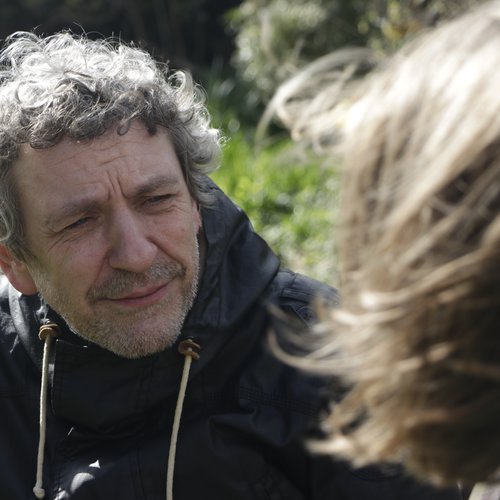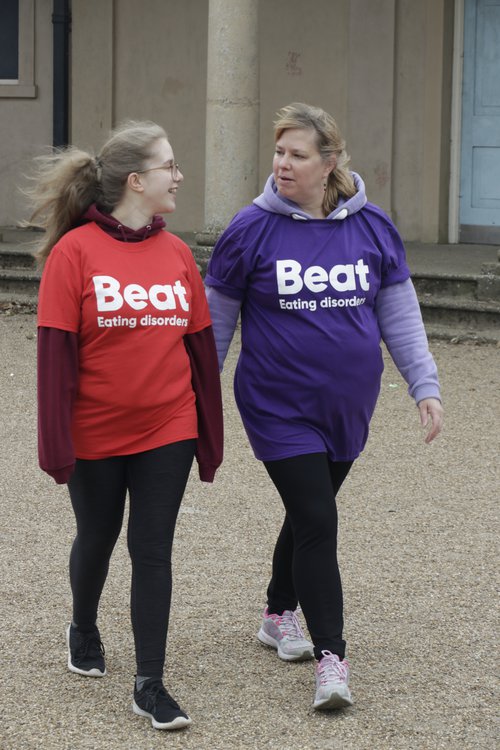Support for Carers

We have published guidance encouraging healthcare providers to ensure better support for families of people with eating disorders, including by offering an assessment of their own mental health needs and offering access to peer-to-peer support programmes.
Caring for someone who has been diagnosed with an eating disorder can feel overwhelming and exhausting. Carers often report that supporting their loved one affects their own physical and mental health. It is therefore important that you have your own support network and positive coping mechanisms. Where possible, ensure you have time away from your loved one to do things you enjoy and gain support from others – carers sometimes say they feel this is selfish, but in fact it will strengthen you and help you get through the difficult times.

Every carer’s experience of supporting their loved one is individual, as is the way they manage their own wellbeing. The following ideas have been suggested by other carers who have supported someone with an eating disorder:
- Seek support for yourself, whether this is in the form of formal counselling, chats with friends, or contacting our helpline. Remember the saying “You can’t pour from an empty cup” – you need to look after your own wellbeing and resources to best support your loved one.
- Take time to manage your own expectations of recovery. It can be hard not to take it upon yourself to immediately “fix” the problem; however, while recovery is entirely possible, the path is often a slow one and not a straight line. The desire for a quick fix can become overwhelming, but it’s also impossible. Accepting what is happening and recognising that some things are outside of your control will lessen the pressure you’re placing on yourself.
- Remind yourself that everyone makes mistakes; there will be times when you reflect that a situation could have been handled better, or you regret something that you have done or said. Rather than berating yourself for these, acknowledge them and learn from them – you are dealing with a very difficult situation and are doing your best.
- Write a list of ways in which other people can help you – this may be practical day-to-day things, or direct help with supporting the person you’re caring for. Writing a list allows you to ask for help with specific tasks based on the interests and capabilities of your own support network, or for them to choose which things they feel most equipped to help out with. Don’t be afraid to ask for help, as most often people will want to support you.
- Take time to reflect upon how you are feeling and your own emotions, as a way of understanding your own needs. It might be that you are struggling to enjoy things you used to, so this could be a sign that you should speak to your own GP about support they can offer.
- Give yourself permission to meet your own needs. Think about what you enjoy or makes you feel better – perhaps a hobby, exercising, seeing friends or practicing mindfulness. You will be able to be more supportive of your loved one if you have had a chance to focus on your own wellbeing.
- Break down the areas of stress in your life into chunks that feel more manageable. Rather than feeling like everything is overwhelming, are there aspects of the stressful situation that you are able to think of solutions for?
- If you are concerned about, for example, an upcoming conversation with your loved one’s clinician, write down a list of questions or concerns you have prior to the meeting. This will help you to feel more prepared for the conversation. It could also be helpful to let the other person know that you wish to talk to them prior to the discussion, so that you are not rushed.
- Work on communicating constructively through the use of “I” statements, rather than “you” statements, which can feel accusatory and result in the other person being defensive.
- Consider what will help you feel more grounded and aware of the present moment, rather than feeling like everything is spinning around in your head. Experiment with different grounding techniques. For example, having a small object available to touch, such as a stone or a crystal, can help remind some people that they are in the present. Breathing exercises, such as those found on YouTube videos or apps, can also be a useful resource to help people to let go of tensions and bring them back into the present moment.
- Practice self-compassion. You did not ask to be in this situation nor are you to blame for it. Exercises to help you practice self-compassion can be found on the internet.
Financial Support
Citizens Advice Bureau and carer support networks can provide further information, and some will support you to apply for Carer’s Allowance. If your loved one is a university student, then they can apply for Disabled Student’s Allowances (DSAs) to see if they are eligible for financial support to help cover some of the extra costs due to the eating disorder.
Telling Others
Eating disorders, and mental illnesses in general, are often surrounded by stigma and misconceptions. This may make telling people that someone close to you is suffering more difficult. In some cases, you may not need to explain the exact nature of the illness to other people, especially if they are not likely to meet your loved one. However, when it is important to let people know about the eating disorder, the information on our website may help the person you’re talking to understand more about eating disorders.
Once people are aware of the situation, you might find they have questions about your wellbeing and that of your loved one. If this becomes difficult for you or feels overwhelming, you could ask someone else to keep people updated; it is important to do what feels manageable to you. If there are people who want to help but whose close involvement is not appropriate, you could ask for their help with day-to-day tasks. This could also involve asking for help with a sibling or child or young person where applicable, for example, giving them a lift to a club they attend, or taking them to the cinema for some time away from home.

Supporting other dependents
As well as supporting your loved one with recovering from an eating disorder, it may be that you also have others who depend on you for your support. This might be a child, a relative, a friend or a partner for example. This can be extremely exhausting, and lead to people feeling like they are not doing a ‘good enough’ job. If you’re feeling this way, it’s important to recognise the huge challenge you are facing, and the hard work you are putting in.
Where possible, recognise that you’re not alone. Ask for support and accept it if it’s offered, so you can share the burden with others. If the person you are also supporting is a child, it could be helpful to speak to their school about what is going on for them at home and any extra support they may need.
Supporting siblings
Siblings who are not primarily responsible for their brother or sister's care can still play a role in their recovery. This may involve attending formal treatment sessions, or helping more generally, such as joining in an activity to support their sibling before or after mealtimes. Although siblings may want to be involved in this way, it is important to make it clear to them that they are not responsible for their loved one’s treatment or recovery. It can also be helpful to make clear to the sibling that they can have space away from home if needed – such as spending an evening at a friend’s house or going to see a film at the cinema.
Siblings can feel a range of confusing emotions about the eating disorder and the impact it has on the family. It's common to fear that their brother or sister will never recover and will die, so it is important to try to reassure them that recovery is possible, but sadly it is not a quick process. Reassure them that you are all working to support your loved one as best you can. Siblings can also report feeling guilty for living their life, but it’s important to encourage them to keep having fun and seeing their friends; let them know that their sibling’s recovery is not their responsibility. Often siblings can feel anger at the situation, which is something you may also have experienced. Try to help them direct this anger at the eating disorder, rather than their sibling, and reassure them that it is normal to feel this way.
Siblings often say that they would have appreciated having more information about the illness, so it can also be beneficial to ask them if they have any questions about what is going on and to let them know they can come to you if they do. It may be that it would be helpful to have a close friend or relative to talk to the sibling too, since they may wish to protect you and so not be open about how they are feeling or concerns they have. Beat’s leaflet ‘Caring for Someone with an Eating Disorder (for Under 18s)’ may be useful to show them.
Supporting Somebody
If you’re worried about someone then it’s important to encourage them to seek treatment as quickly as possible to ensure the best chance of recovery.
Beat's Services for those caring for someone with an eating disorder
Beat supports anyone affected by an eating disorder. If someone you know is suffering, and you’re supporting them in any capacity, our services are available to you as well.
Taking time out
If you’re caring for someone full-time, it’s vital to set aside time for yourself. This may be somewhere that friends and family can help. If you’re sharing primary care responsibilities with someone else, you could take it in turns to have some time off. If there’s no one around to take over your role, a carers’ organisation such as the Carers Trust might be able to help. You can see their details below.
British Association for Counsellors and Psychotherapists
Search for therapists in your area. Visit bacp.co.uk.
Carers Direct
An NHS service for carers. Visit nhs.uk/carersdirect or call their helpline on 0300 123 1053.
Carers Trust
A charity offering support to carers. Visit carers.org.
Carers UK
A charity supporting carers. Visit carersuk.org or call their helpline on 0808 808 7777.
Childline
A charity offering support to children and young people, including young carers. Visit childline.org.uk or call their helpline on 0800 1111.
Citizens Advice Bureau
For enquiries about legal rights and responsibilities, benefits for carers, and financial advice. Visit citizensadvice.org.uk.
FEAST
Resources and support for those caring for a loved one with an eating disorder. Visit feast-ed.org.
GOV.UK
Contains information about support services, both your rights and those of the person you’re supporting, and more on the laws that may be relevant to you. Visit gov.uk.
Mind
Information and support for anyone affected by mental health issues. Visit mind.org.uk or call 0300 123 3393.
National Institute for Health and Care Excellence
The NICE guidelines on the treatment the person you’re caring for is entitled to. Visit nice.org.uk.
NHS Choices
Information on eating disorders and other mental and physical health issues, different treatment options, and local services. Visit nhs.uk.
Rethink
Information and support for anyone affected by mental health issues. Visit rethink.org or call 0300 5000 927.